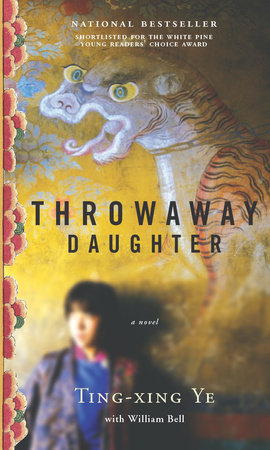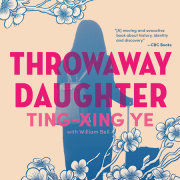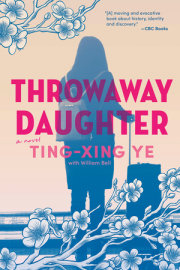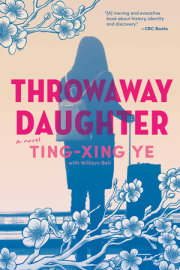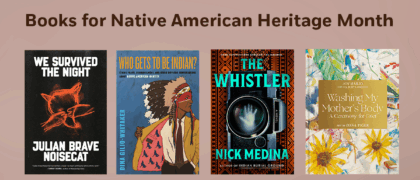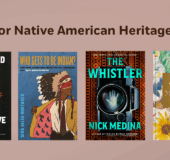PrologueNo one seemed to understand what it was like to have no real birthday. Even Blackie, our Shih-Tzu, had one, noted on the form given to me when Mom put my name down as his adoptive “parent” when I was five years old. Never mind how that affected my understanding of the word
adoption. Blackie’s registration form even recorded his family history, the whole pedigree.
Lucky me. I had a made-up birthday -- December 8, 1980, the day I was found on the steps of the orphanage. I could have been weeks old or a couple of days young; I didn’t know and neither did anybody else. I might as well be a lake discovered by an explorer.
My name is Grace Dong-mei Margaret Parker, but don’t call me anything but Grace Parker,
without initials. Grace is my nanna’s name, and Margaret is the first name of Grandmamma, my mother’s mother. When I came along I ended a silent battle between my two grandmothers that had smouldered ever since my sister was born. Megan was Grandmamma’s middle name, but Nanna only won a spot as my sister’s middle name, Carole. It became a bigger deal, I guess, after my mom had a hysterectomy.
My name has Chinese in it thanks to my pig-headed parents. I did everything I could to change their minds. I begged, argued, and threw tantrums. All I wanted was to have my Chinese name, Dong-mei, removed. “I promise I’ll never, ever ask for anything else,” I pleaded. But my pathetic begging failed. So I tried playing dumb and deaf, with my mother especially, refusing to respond when she called me Dong-mei. I made fun of the sound, saying “done-mine” or, once, “dung-may” because I thought it was a dirty word.
My mother applied her teacher’s patience and reasoning like sticky ointments. “It’s not just a name, Grace; it means much more. Your dad and I promised Mrs. Xia that we would bring you up in touch with your culture and your roots. The name is a good place to start.”
“I don’t know any Mrs. Whatever,” I shouted. “Why do I want their roots? I don’t want to be Chinese, and I don’t want a Chinese name.”
Finally, Mom came up with one of her “reasonable” compromises. Up ’til then, she had called me Dong-mei only at home. If I didn’t stop fussing, she said, she’d use my Chinese name outside our house as well. My resistance crumbled.
As if there wasn’t enough repeating or reusing names, my confusion deepened when my grade three teacher, Miss McKerrow, taught us a new word,
junior. She used a boy’s name in my class as an example.
“Robert Smith Junior,” she said loudly before she wrote the name on the blackboard, “because Rob’s father is also called Robert.”
Rob, who always needed a haircut and smelled bad, beamed at the attention he was getting. He stood up and told the class that in his family there were three Robs and two Juniors. “My grandfather is the first Robert. My dad and I are Juniors. Whenever my grandfather stays with us there’s a mix-up.”
That evening I told my mother that I wanted to be a junior, too. I didn’t have much idea what the term meant, even after Miss McKerrow’s little lesson, but I was pretty sure I was missing out on something, and that it wasn’t fair. After the dishes were done Mom sat me down and said that only boys could be Juniors. It was a sort of tradition that boys were named after their fathers or grandfathers. It seemed to me that boys enjoyed a lot more choices than I did.
* * * * *
My parents insisted on feeding me memories of the misery in my life before I came to Canada, which, to me, was no misery at all because I didn’t remember it. They told me about my abandonment, my life in an orphanage, their journey to China to adopt me. Little by little they let the details out, as if they were rehearsing a well-directed play, every scene written with extra care and consideration.
But it was as if these tragic events had happened to someone else. I hated my parents’ narratives about a stranger, even if the stranger was me. I was sick of seeing the sacred scrap of paper on which there were some marks in faded blue ink. According to my father, it had been hidden between the layers of blankets I was wrapped in when I was found outside the orphanage.
“Dong-mei,” my mother pronounced awkwardly, pointing at the second line. “Mr. Wu says it means Winter Plum-blossom.” Her finger then moved up and she spoke again. “Chun-mei, Spring Plum-blossom, is the name of your birth mother. Mrs. Xia from the orphanage told us that.”
Since I was born in the winter, probably at the time when winter plum trees were in flower, Chun-mei must have been born in the spring. In China it was traditional to name girls after flowers, Mom went on, adding that the note must have been written and tucked into my blanket by my birth mother. “Obviously the names are very important to her or she wouldn’t have taken such a risk.”
“It’s a stupid name,” I snapped. “I don’t want to be named after some dumb flower. Why didn’t this Chun-mei keep the baby and throw away the note?”
As far as I was concerned, the note as well as my Chinese roots could wither in hell.
Copyright © 2003 by Ting-xing Ye with William Bell. All rights reserved. No part of this excerpt may be reproduced or reprinted without permission in writing from the publisher.

